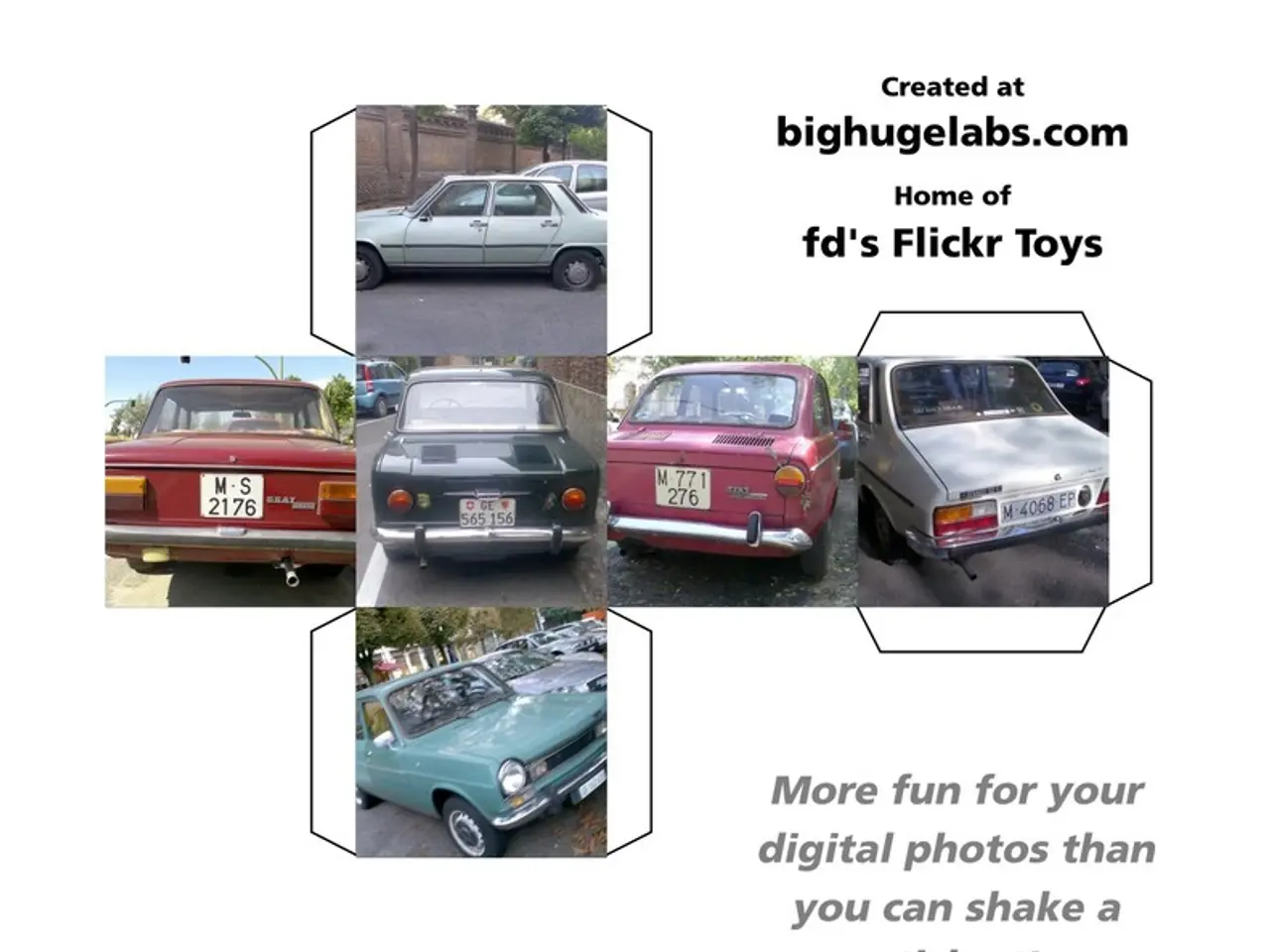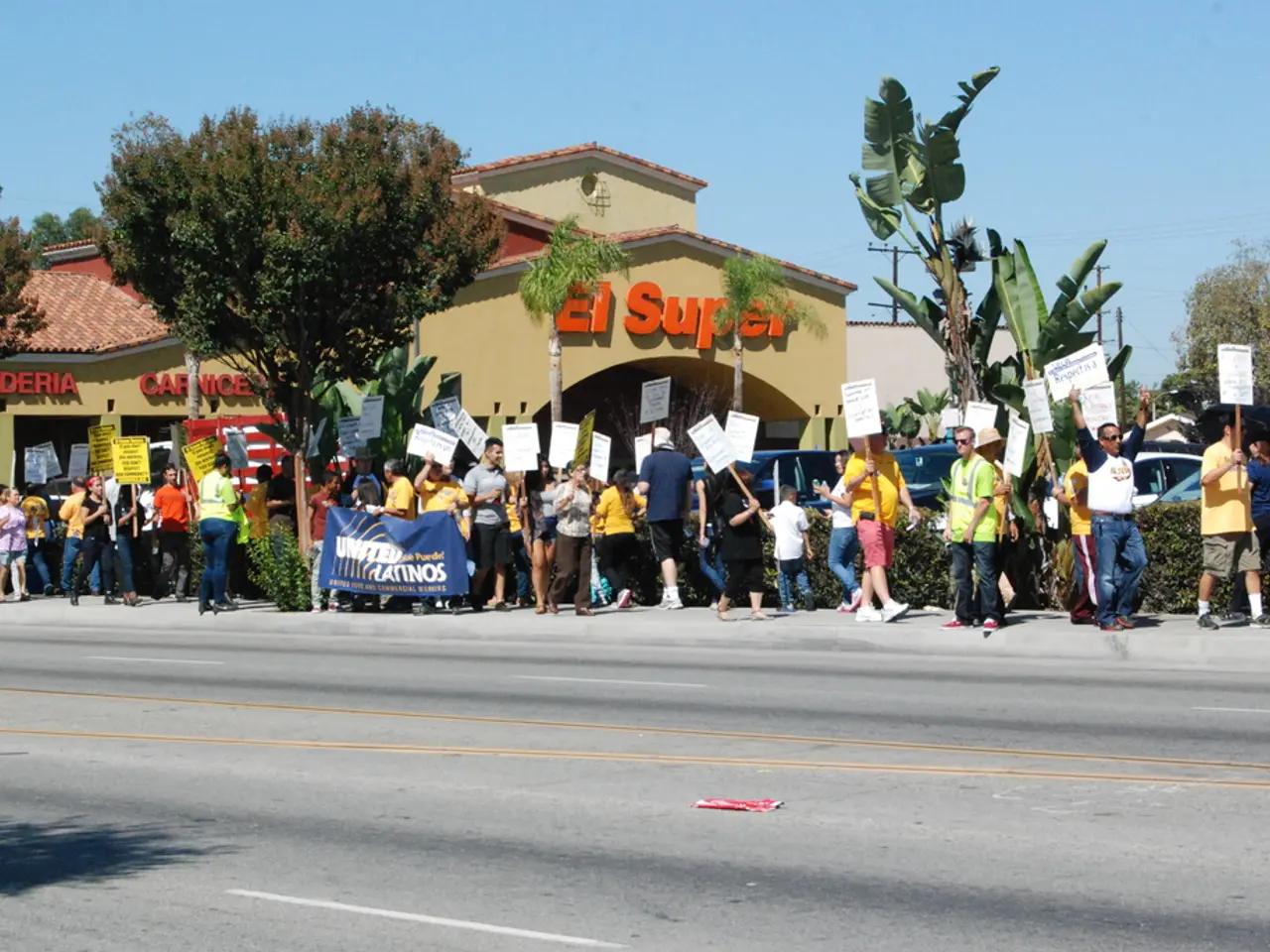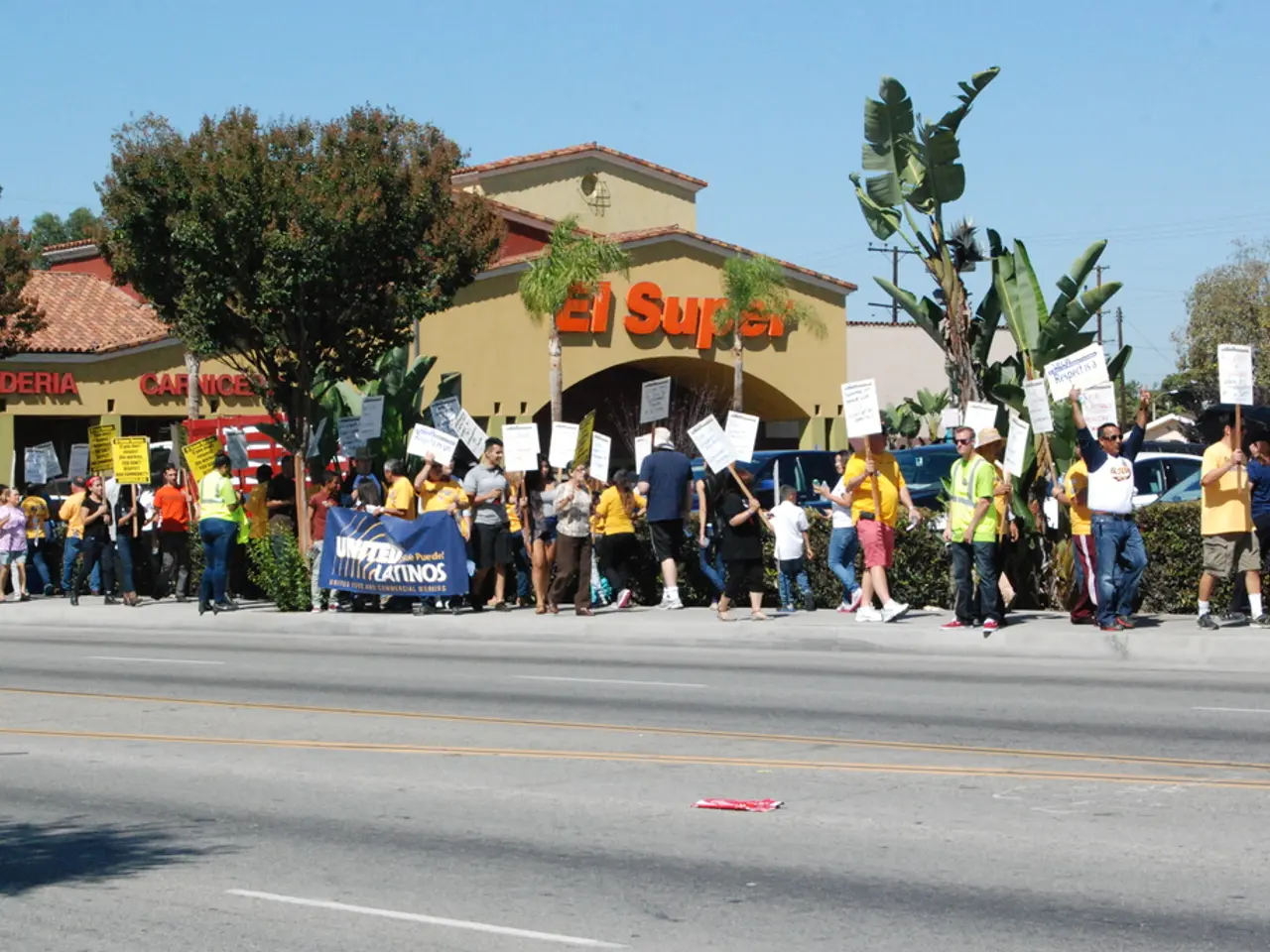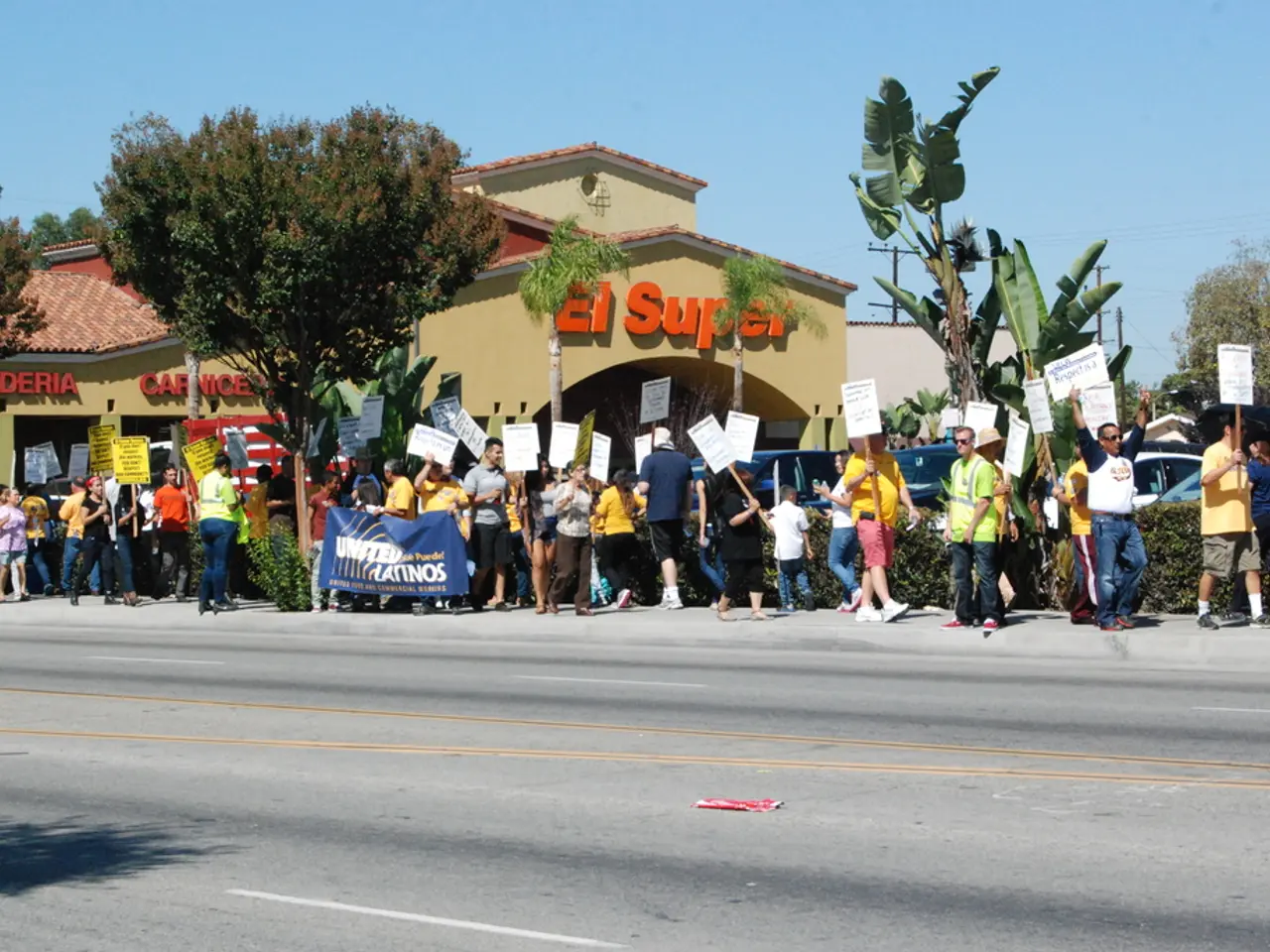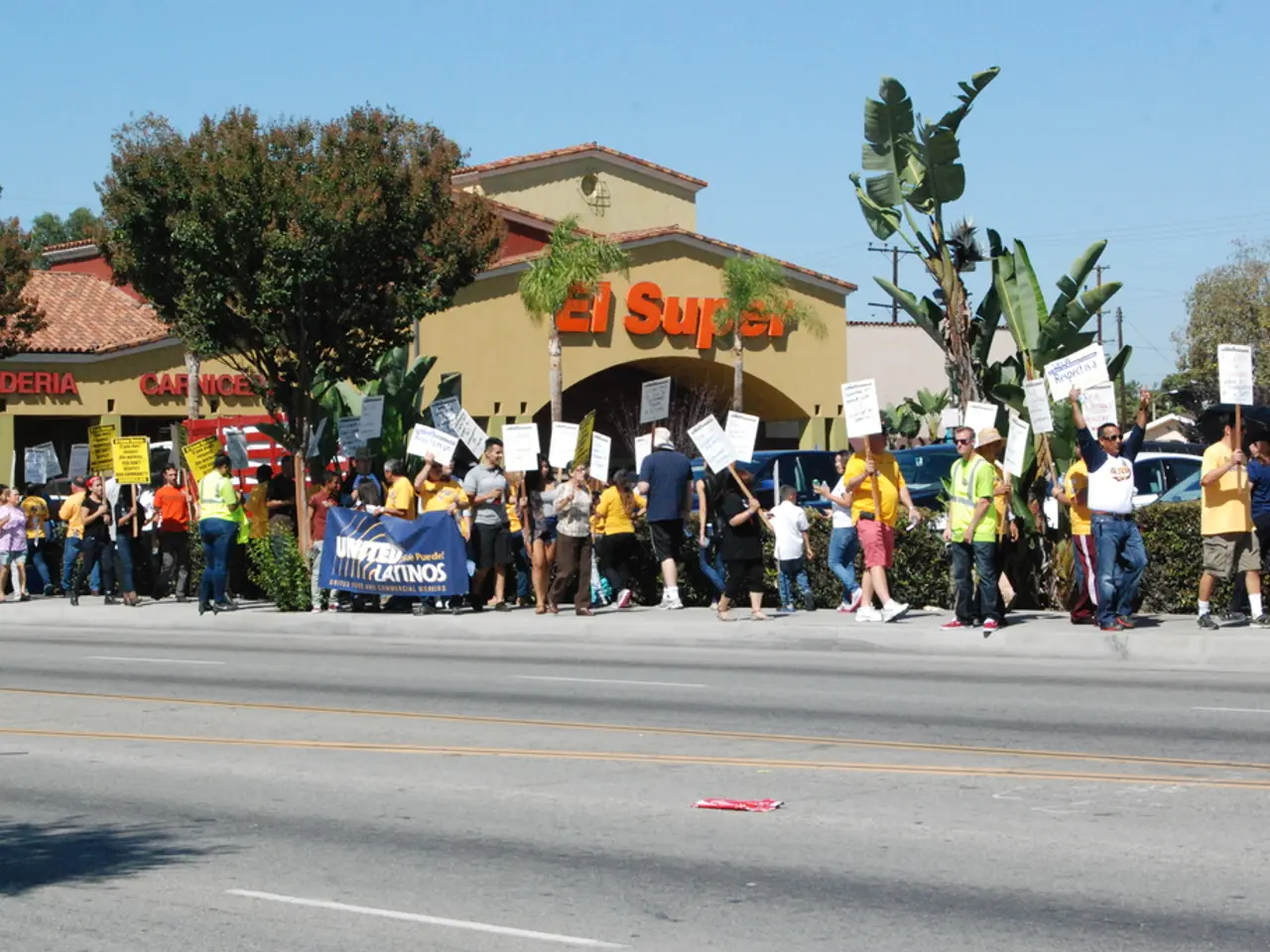Green Light for the "Berlioin Car-Free" Popular Initiative!
Approval for "Berlin Car-Free" Popular Initiative Owing to Sufficient Valid Signatures Gathered - European Court Finds Commission Lacked Compliance with Treaty Obligations
In a significant turn of events, the "Berlioin Car-Free" Popular Initiative, seeking to significantly reduce car usage within Berlin's city center, has successfully passed a major legal milestone. The Berlin Constitutional Court has ruled the proposed referendum on largely banning cars in the city center as admissible and permissible, setting the wheels in motion towards a popular vote or legislative proposal stage [1][3][5].
The proposed initiative aims to drastically minimize car use within Berlin's urban heart. If passed, it would limit passenger car journeys to just twelve per year per individual within the affected area, transforming the city center into a largely car-free zone [2]. This radical plan is fueled by environmental concerns, aiming to reduce emissions and traffic congestion, promoting a cleaner, more pedestrian- and cyclist-friendly urban environment [5].
The court's decision stated that no fundamental rights would be infringed upon as no specific street usage can be derived from these. The proposed regulations would not violate the principle of proportionality either, as the bill serves "overriding important common good objectives - the protection of life and health, as well as environmental and climate protection" [4].
To mitigate potential burdens on businesses and individuals, the court indicated that special use permits, for example for goods and passenger transport or people with mobility impairments, would be granted [4]. "Berlioin Car-Free" submitted their proposal for the popular initiative back in 2021 and will now see their bill debated in the Berlin House of Representatives. If rejected, the initiative can demand a popular referendum. If at least seven percent of those entitled to vote sign the popular initiative, a popular vote will follow [4].
The court's ruling sets a precedent for citizen-led environmental initiatives, underscoring the growing importance of participatory democracy in shaping urban policy [1][3][5]. Potential environmental benefits include a decrease in air pollution and greenhouse gas emissions, supporting Berlin’s broader climate goals of becoming emissions-free by 2035. Urbans mobility patterns may shift towards public transit, biking, and walking, while social and economic effects remain to be seen [1][3][5].
As the next phases unfold, the practical effects of the policy on the city and its residents will become clear. This groundbreaking decision represents a significant step forward for the "Berlioin Car-Free" initiative, poised to reshape Berlin's urban landscape with a strong focus on sustainability and public well-being.
- Popular Initiative
- Berlioin
- Constitutional Court
- Inner City
- Sport
- S-Bahn
[1] Berlin "Car-Free" Popular Initiative Wins Key Legal Victory - Greenpeace [Website] (August 10, 2022)[2] Berlin: Initiative "Berlioin Car-Free" for one-year driving ban in the ring road area - t-online [Website] (June 28, 2021)[3] Berlin's Car-Free Center Initiative: The Next Step For “Car-Free” Cities - CleanTechnica [Website] (August 10, 2022)[4] Berlin's Car-Free City Plan Passes Key Legal Hurdle - DW [Website] (August 10, 2022)[5] The Berlin Car-Free Initiative: What You Need to Know - Resilience [Website] (August 10, 2022)
- The Constitutional Court's decision on the "Berlioin Car-Free" Popular Initiative has significant implications for environmental-science policies and policy-and-legislation, potentially setting a precedent for future citizen-led initiatives.
- The "Berlioin Car-Free" Popular Initiative, if passed, aims to address climate-change by drastically reducing car use in Berlin's inner city, aligning with the city's broader climate goals of becoming emissions-free by 2035.
- The successful passage of the "Berlioin Car-Free" Popular Initiative through the Berlin House of Representatives or via a popular vote would mark a significant shift in politics, transforming Berlin's city center into a largely car-free zone, thereby promoting sport (such as cycling) and public transit use.
